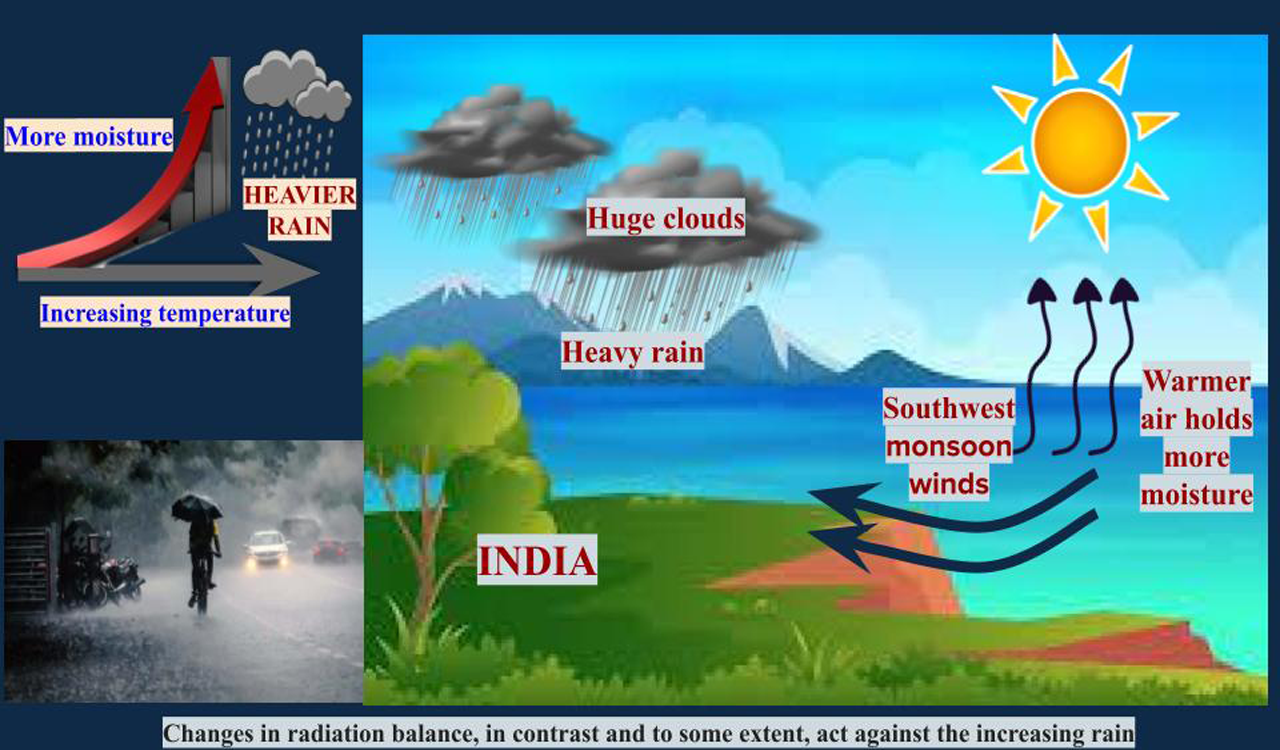The research reveals that as temperatures increase, the atmosphere’s water-holding capacity rises, intensifying rain events.
Published Date – 9 January 2024, 04:53 PM

Hyderabad: A research study by the Centre for Earth, Ocean and Atmospheric Sciences (CEOAS) at the University of Hyderabad, published in Geophysical Research Letters, explores the impact of rising temperatures on very extreme rainfall events expected at the close of the 21st century.
The research reveals that as temperatures increase, the atmosphere’s water-holding capacity rises, intensifying rain events.
The study anticipates that altered radiative forcing due to global warming will not only heat up the upper atmosphere but also stabilize it, countering the influence of increased humidity on precipitation intensity.
The research points towards a future decrease in cloud cover alongside an increase in cloud water content, signaling a shift to more convective clouds during the Indian summer monsoon. This shift may result in short bursts of convective rains leading to extreme rainfall events but drier conditions on most days.
Dr. Stella Jes Varghese, under the guidance of Prof. Ashok Karumuri, spearheaded this collaborative research involving scientists from CSIR Fourth Paradigm Institute, Indian Institute of Technology (IIT) Bombay, and Meteorological Research Institute (MRI) Japan.
The study underscores the importance of understanding extreme rainfall dynamics for climate adaptation and mitigation strategies, emphasizing the need for proactive measures to address potential climate change impacts on precipitation extremes.
The full article can be accessed at https://agupubs.onlinelibrary.wiley.com/doi/10.1029/2023GL105680#main1.


